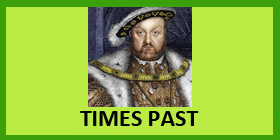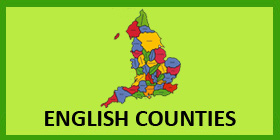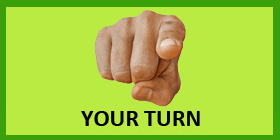




Back to the archives home page

2005
DO THOSE IN CHARGE UNDERSTAND EDUCATION?
I wrote this piece back in 2005 but I believe its relevance is still here today. If my travel friends and others would like to read, agree,
disagree and comment, I would be most interested to hear from you.
For too long the education of our children has been in the hands of people who don’t really know anything about learning. Teachers are created from raw
material and, those with enthusiasm, are drowned under a mass of instructions as to what they should teach and how. The great teachers from our past, the
Aristotles of this world, were not weighed down by lesson plans, rules, outcomes, aims, objectives (what is the difference) and individual learning plans. They
sought to impart the knowledge they had to others who were willing to listen and learn and they did this without many of the fantastic tools we have today, which
make everything so much more exciting. We have photos, we have videos, we have the internet and, whatever you may hear from anyone, anywhere, we do not have cleverer
people but we should be able to make learning enjoyable and, thereby, something which children want to experience. However, it seems that our best inventions, our
most creative minds, come from the people who have the least qualifications and less formal education. Why?
My belief is that all we worry about today is teaching not learning. We impose information into the minds of our young people and information is useless
unless you know what to do with it. That is knowledge. Sadly, we are not a knowledge-based society, we are an information-based society and all the poorer for it.
I should, when a teacher, have made sure my pupils could pass exams with the best mark possible. The exam boards in order to justify their existence make the exams
easier and easier and so stretch the knowledge capacity inversely. “You don’t need to know that” is a familiar cry from teachers it seems. Oh yes we do, should be
the reply.
Twenty or more years ago, when I was teaching 16 year-olds, I gave them my old (1966) “O” level Maths paper. Not only could they not answer many of the
questions, but they also hadn’t learned some of the topics covered. As a teacher, I would like my pupils to hear what I know, think about it, question it and maybe
prove my knowledge wrong or enhance and extend it. I’m not scared they might end up knowing more than I do. I hope they do because, if not, I am a bad teacher. I
can fill their heads with facts; any idiot can do that, just look at advertising. What I want to do is fill their minds with questions that they want to go off and
answer. If all we can do is repeat what we are taught, then when will we ever progress?
I think the time has come for us all to stand up and be counted. Do we want to learn or do we want to be taught? Do we want to find out more or do we want to
be spoon fed with the information our teachers are told we should know. I have long loved a quote I once found, which said that education is too important to be
left solely to the educators. Einstein said, “education is what is left when you forget all you have been taught in school.” Maybe we are getting it wrong.
My idea about education is not to teach facts and make this the sole basis for the system. Facts are important but education is about taking an experience,
taking reality and asking questions about it. Why did it happen, what caused it, how does this work? In olden days, young men learned from their elders, as did
young women. They learnt skills they could use in later life. They learned by doing not by hearing, they learned by experience and as a result they understood. We
can learn in so many ways. I have said somewhere else on this site that I once wrote a book about learning to learn. In it I claimed we could learn by memorising,
we could learn by understanding and we could learn by doing, the famous MUD acronym, or we could combine all three. Learning the letters of the alphabet by memory
has no point without having the ability to understand how to put them together to make words. And making words becomes so much easier when we can talk and practice.
I now believe there are even more ways to impart knowledge and skills to our young people and we are not making full use of them because we all worry, and are being
programmed to worry, about tangible results.
I had a fantastic education in a great school. On my final day there, the head, an amazing guy called David Black-Hawkins, came over and spoke to my father.
Later the gist of the conversation was told to me. My dad said that dear old Mr Black Hawkins had told him that he didn’t really care what qualifications pupils had
when they left his school as long as he and his staff had equipped them to enjoy their lives and deal with any problems they might encounter. ‘I want them to believe
in themselves whatever any results may tell them’, he said, ‘because if they do that, then they will achieve everything they want’.
I want to pass on to the young people I am in contact with, as much of my knowledge as I can. I want them to add this old-fashioned knowledge from a grumpy,
old fogey to their own enthusiasm and modern style. Of course they will delight in telling me they know more than I do and so they should. I will delight in, as an
even older oldie wrote, watching them “doing things I used to do, they think are new”. I respect them and I hope they do me. Let’s begin to learn from all of this
and not just by repeating what we have been told. Memory is good to a degree but not, as sadly seems the case today, a university degree.
![]()

